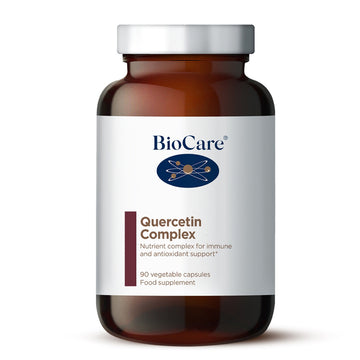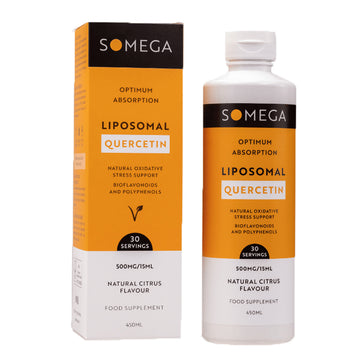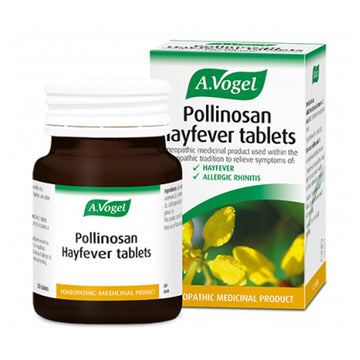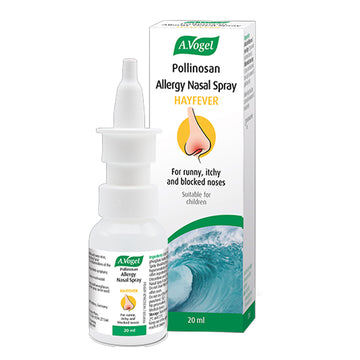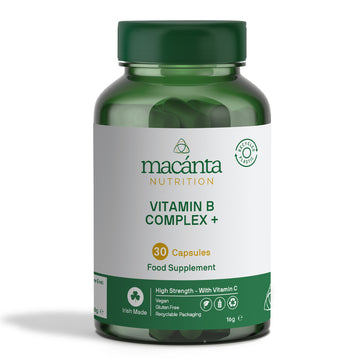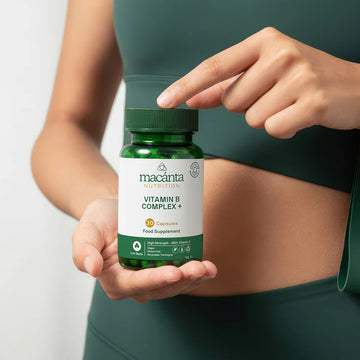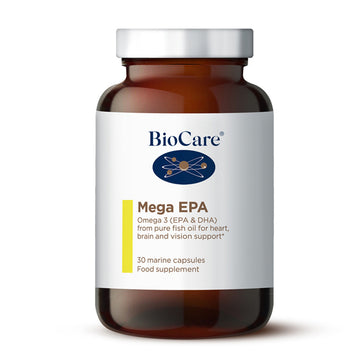Streaming eyes and runny noses are just some of the symptoms hay fever sufferers deal with regularly. If you suffer from hay fever, you may think there's nothing you can do to alleviate the symptoms apart from over the counter anti-histamines. But we’ve seen lots of people overcome hay fever completely with herbs, supplements, and lifestyle changes. So we've put together 8 useful tips to manage hay fever.
What is Hay Fever?
Hay fever is the name we give to the symptoms you experience if your body overreacts to pollens or spores in the air. By overreacting, your body releases chemicals which can inflame the nasal passages, sinuses and eyelids. Your body will try to expel pollens and spores by making you sneeze, cry or by making your nose run constantly... sound familiar?
Tips to Manage Hay Fever
While hay fever is a nuisance, some simple lifestyle changes and herbal remedies can make a difference. Here are some useful tips to manage hay fever, including some effective natural remedies.
Probiotics
Probiotics are essential for anyone who suffers any kind of allergy. They are the foundations of a strong and balanced immune system and especially important for children. It’s a fact that children with lots of varied good bacterium in their systems have fewer allergies.
Quercetin
Quercetin is a natural anti-histamine. It’s found in foods such as onions, capers, apples, peppers and green leafy veg. It comes in capsule form, but yes, it’s just as good to eat lots of quercetin rich foods! It inhibits histamine release so can reduce hay fever symptoms.
Pollinosan
Pollinosan comes from the plant luffa or sea sponge. It kind of acts like a sponge, absorbing excess pollen before it gets as far as the bloodstream. The trick with this remedy though, is to take it for a while so it builds up to a natural barrier. You can try it as drops, a spray or in a tablet.
B-Vitamins
Hay fever often leaves sufferers exhausted and fed up. This is because your adrenal glands have to work harder than usual when you have allergies. B-vitamins, in particular, vitamin B5 support the adrenal glands and can help hay feverish folk to feel less tired and groggy.
Omega Rich Oils
Fish oils and oils from nuts and seeds are anti-inflammatory. Hemp seed oil is thought to be especially good for hay fever symptoms. Whether you take oil in capsule, liquid or in foods, it should still benefit you.
Inside/Outside
Everything that has been outside collects pollen. When you come inside, change your clothes, wipe your hair with a cloth, wipe your pets fur if possible and keep windows closed during the day.
Put Up Barriers
When it comes to tips to manage hay fever, your makeup bag might actually come in handy! Lots of people can reduce their symptoms by putting vaseline around their nostrils or on eyelashes. This catches some of the pollen before it goes up noses or in eyes. Wrap-around sunglasses work well for this too.
Beware Of Sugar
If you want your immune system in top shape, reduce your sugar intake significantly. Sugar also contributes to inflammation. Basically, if you have swollen sinuses or eyes, sugar could make it worse. Sorry! Take a peek at some great natural alternatives to sugar here.
Check out more tips to survive hay fever season here as well as nutrients you should be adding to your diet that work well for hay fever sufferers.
Please note, this blog is for informational purposes only and should not replace medical advice.
It’s always best to consult your doctor before taking any new supplements, treatments or remedies if you are pregnant, breastfeeding or on medication.
Checked and updated: 6th September 2023





